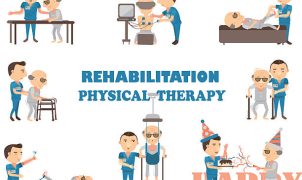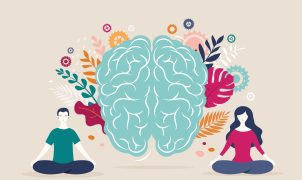A Comprehensive Overview of Strategies and Facilities for Overcoming Substance Abuse

In a world where substance abuse and addiction continue to affect countless lives, the journey to recovery becomes a beacon of hope. This article delves into the multifaceted landscape of drug and alcohol rehabilitation, shedding light on the strategies, challenges, and transformational power of seeking help to overcome these devastating afflictions.
Understanding the Battle Against Addiction
The allure of drugs and alcohol can quickly spiral into an all-consuming struggle. Substance abuse not only impacts individuals’ physical health but also ravages their mental and emotional well-being. Acknowledging the need for change is the first step towards recovery, and drug and alcohol rehabilitation stands as a guiding light for those who are ready to embark on this journey.
1. Tailored Treatment Approaches
Just as a skilled journalist tailors their storytelling style to resonate with their audience, rehabilitation centers customize treatment approaches to cater to individual needs. From medical detoxification to behavioral therapy, each strategy aims to address the unique challenges that substance abuse presents.
2. Holistic Healing
Similar to crafting a comprehensive news story, holistic rehabilitation centers approach recovery with a holistic lens. They recognize that overcoming addiction requires more than just breaking physical dependence; it involves addressing underlying emotional and psychological factors as well. Holistic therapies like yoga, meditation, and art therapy complement traditional treatments, fostering a well-rounded recovery journey.
3. Therapeutic Communities
Rehabilitation thrives in a supportive community environment, much like the journalistic camaraderie that fosters growth. Therapeutic communities provide a space for individuals to connect with peers who understand their struggles. Through shared experiences, individuals find solace, support, and a sense of belonging that strengthens their commitment to recovery.
4. Relapse Prevention
Just as seasoned journalists learn from past experiences to refine their skills, rehabilitation equips individuals with tools to prevent relapse. Therapists impart coping strategies, stress management techniques, and relapse prevention plans that empower individuals to navigate life’s challenges without resorting to substance abuse.
5. Family Involvement
Family dynamics play a crucial role in the recovery journey, much like a journalist’s network influences their growth. Many rehabilitation programs involve families in therapy sessions, helping them understand addiction’s complexities and learn how to support their loved ones effectively.
6. Aftercare and Long-Term Support
The journey to recovery doesn’t end with rehabilitation; it’s an ongoing process, much like a journalist’s pursuit of excellence. Aftercare programs provide ongoing support, connecting individuals with support groups, counseling, and resources that reinforce their commitment to a substance-free life.
7. Breaking Stigmas
As a journalist, breaking societal barriers is a mission. Similarly, drug and alcohol rehabilitation challenges the stigma associated with addiction. Education, awareness, and open conversations contribute to destigmatizing addiction and encouraging individuals to seek help without shame.

Much like a powerful news story, the journey through drug and alcohol rehabilitation weaves a narrative of strength, resilience, and transformation. It’s a testament to the human spirit’s capacity to overcome adversity and embrace change. As a seasoned journalist recognizes the impact of stories, rehabilitation centers acknowledge the potential for individuals to rewrite their narratives and emerge as victors over addiction. The path to recovery is paved with hope, support, and the unwavering belief that a brighter future is within reach.
Stay tuned for the second installment of this series, where we’ll dive deeper into the challenges, breakthroughs, and success stories within the realm of drug and alcohol rehabilitation.
Overcoming the Abyss: Unraveling the Challenges of Drug and Alcohol Rehabilitation
Exploring the Complex Hurdles and Triumphs in the Journey to Sobriety
The road to recovery from drug and alcohol addiction is paved with challenges that parallel the intricate investigative work of a seasoned journalist. In this exposé, we delve into the challenges and triumphs that individuals face as they navigate the arduous path of drug and alcohol rehabilitation. Through tales of resilience, personal growth, and the power of support, this article sheds light on the multifaceted journey towards sobriety.
1. Battling Withdrawal Symptoms
Just as a journalist faces obstacles in uncovering truth, individuals in rehabilitation confront withdrawal symptoms that test their resolve. Detoxification, the initial step, often involves physical and emotional discomfort. Medical professionals provide essential care to ensure individuals can safely overcome withdrawal while laying the foundation for the subsequent stages of recovery.
2. Confronting Psychological Barriers
Similar to overcoming writer’s block, individuals in rehabilitation grapple with psychological barriers that hinder progress. Guilt, shame, and low self-esteem often accompany addiction. Therapists and counselors delve into these emotions, helping individuals confront their past, heal psychological wounds, and develop a positive self-image.
3. Managing Cravings
Just as a journalist must manage their time effectively, individuals in recovery must manage cravings that can threaten their progress. Rehabilitation equips individuals with coping mechanisms to navigate triggers and temptations, empowering them to resist cravings and make healthier choices.
4. Addressing Co-Occurring Disorders
Much like investigating interconnected stories, rehabilitation acknowledges the presence of co-occurring disorders, such as depression or anxiety, alongside addiction. Dual diagnosis treatment recognizes that these disorders are intertwined and require integrated care to achieve lasting recovery.
5. Navigating Relapse
Similar to facing challenges in investigative journalism, relapse can be a setback on the journey to sobriety. It’s vital to view relapse as a temporary setback rather than a failure. Rehabilitation centers emphasize relapse prevention strategies, teaching individuals how to recognize triggers, seek help, and recommit to their recovery journey.
6. Rebuilding Relationships
Just as journalists build rapport with sources, individuals in recovery strive to rebuild relationships strained by addiction. Family therapy and counseling provide a platform for open communication, forgiveness, and the restoration of trust—a process that parallels the pursuit of truth in journalism.
7. Embracing a New Identity
Much like redefining their writing style, individuals in recovery reshape their identities. The transformation from an individual consumed by addiction to one committed to sobriety is a journey of self-discovery and empowerment.
8. Celebrating Milestones
Similar to acknowledging journalistic achievements, celebrating sobriety milestones is essential for individuals in recovery. Each day, week, and month of sobriety is a testament to their strength and progress.

In Conclusion
The journey of drug and alcohol rehabilitation mirrors the investigative journey of a seasoned journalist. It’s marked by challenges, breakthroughs, and moments of profound self-discovery. Just as journalists uncover stories that inspire change, individuals in recovery craft narratives of resilience, hope, and transformation. The path to sobriety is an ongoing quest for personal growth, healing, and a brighter future—a journey that reveals the strength of the human spirit in its pursuit of freedom from addiction.























































































































































